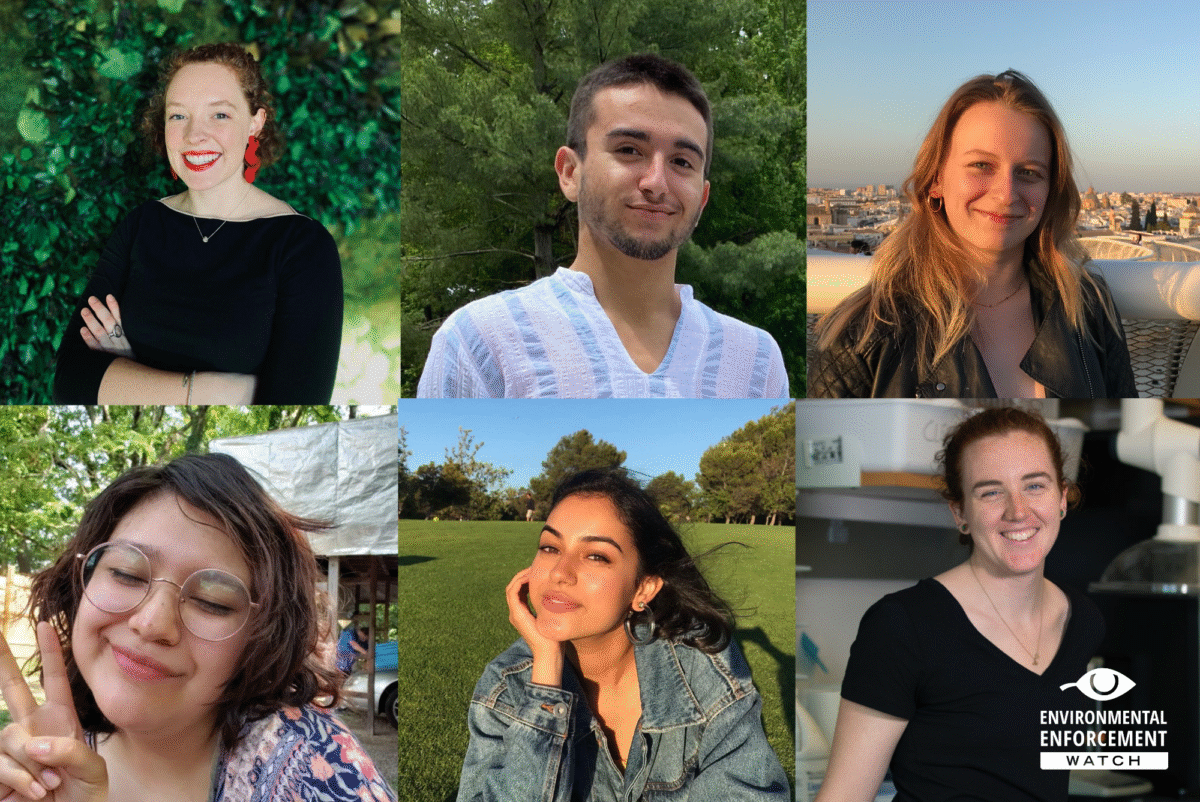by Casey Greenleaf, Cole Alder, Gabby Trudo, Leslie Alanis, Maalvika Bhat, and Megan Raisle
Environmental Enforcement Watch (EEW) is EDGI’s latest project. A collaborative effort across several of our working groups, EEW is a series of online workshops aimed at increasing EPA ECHO data literacy through our custom Jupyter Notebooks, in an effort to foster community research and polluter accountability. Our interns—young, passionate individuals—have put in countless hours developing and fine-tuning every aspect of our EEW workshops. We thank them for their many ideas and efforts, without which EEW would not be what it is today. Without further ado, here are our interns:
*Note: These interviews were conducted prior to our first Sunrise Workshop on July 18th, 2020.
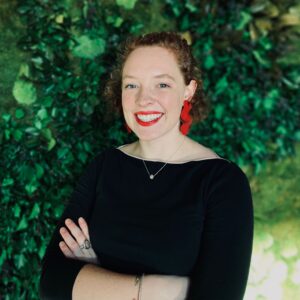
What did you want to be when you grew up and how does it differ from what you’re doing/what you’d like to do now?
I used to be convinced that I was going to be a famous actress or musician. I spent the majority of high school in plays and taking voice lessons, and actually almost went to a conservatory to study opera and considered going to an acting school for a while. Performing is still a large part of my life – I write and perform in a band and, candidly, still harbor a primordial desire for widespread acclaim. I don’t think I necessarily imagined politics and environmental activism would become such a throughline in all my work, but I certainly owe my ability to raise my voice and imagine creative solutions to large problems to some of those clown and improv classes.
Explain your role in the EEW project. What excites you the most regarding your role?
When it comes to the EEW project, I’ve been working with our first official EEW partners, the Boston hub of the Sunrise Movement, to further develop our project into something that fits their needs as well as creating materials to share the EEW project with future partners. I absolutely love creating (all sorts of) things and relish the ability to work with people, and outreach allows me to do both of those things at the same time.
What do you hope to gain from the EEW project? What do you hope to help accomplish?
I’ve been learning so much about how to build a project from the ground up, and I’m really proud to be able to bring this amazing tool to organizations fighting for environmental justice, a clean environment, and a livable future.
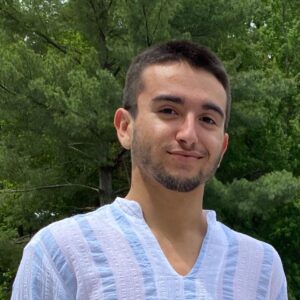
What was/is your major, and why did you choose it?
I’m a Sociology student at Northeastern University, formerly a dual major (with Philosophy) and a minor in Environmental Studies. I pursued Sociology and Environmental Studies because I recognized the impending climate disaster and the massive inequities and injustices around me, and wanted to be involved in social change without working in the corrupt world of politics. I chose Philosophy in part because I liked to argue with people I fundamentally disagreed with, and in part because I wanted to develop some kind of rigorous, secular morality. But I quickly found sociology to better serve both of those goals. I was also able to form great relationships with the faculty, and I joined environmental sociology-based research teams which led me to EDGI.
Explain your role in the EEW project. What excites you the most regarding your role?
As the EEW website and offboarding intern, my responsibilities include assisting in website development and maintenance; developing promotional materials like the video on the home page; working with partner organizations to design report templates for use during and after the workshops; offboarding workshop participants with follow-up materials and outcomes; working with partner orgs after the workshops to synthesize reports and share/promote data; and tracking EEW media coverage and communicating with reporters.
What do you hope to gain from the EEW project? What do you hope to help accomplish?
I am already gaining so much from this project, including new skills like managing projects in GitHub, better fluency in web design through WordPress, increased knowledge of environmental regulation, grant-writing, and event planning. I want to continue to develop these skills, and hopefully begin to learn how to code. I’m most excited about this project’s potential to engage all types of people with environmental data and regulatory systems, bring the environmental crisis to light, and hopefully lead to some justice, remediation, and divestment.
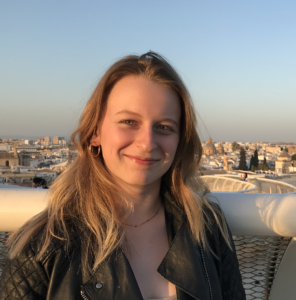
If you could live anywhere in the world, where would it be? Why?
I was born and (mostly) raised in Houston, Texas. When I was in middle school, following a messy divorce, my mom uprooted my three siblings and me—kicking and screaming—to Providence, Rhode Island for a year and a half. I hated Providence at first, more the result of a middle school mid-semester move than any concrete shortcomings, but grew to love the city so much that I moved back on my own at sixteen. Providence is beautiful with nearby beaches and forests; the downtown is something out of a movie (Underdog, 2007) with large historical buildings and community events that bring the city together. Waiting out the pandemic in Houston with my parents has made me long for Providence and the surrounding nature—or really any break from the ‘feels-like’ 105°F humidity.
Explain your role in the EEW project. What excites you the most regarding your role?
I am the Social Media Intern for EEW and the Interim Communications Coordinator for EDGI. I craft the language for our posts for EEW and suggest news for EDGI to retweet. While I’m relatively new to managing social media, I feel I have an edge as a Zoomer cusp (older Gen Z) with two younger sisters who keep me up to date on what’s trending with the (even-) younger groups. I’ve seen social media used for extremes—to drastically better the lives of others and as a tool in the spread of (mis/dis)information, so I’m excited to have a role in an organization that prioritizes accuracy and contextualization of findings while supplying attendees with the data to advocate for themselves and their communities.
What do you hope to gain from the EEW project? What do you hope to help accomplish?
As I head into my final semester at Northeastern University, I am grateful for EEW as it has provided me with a space to hone a set of marketable, practical skills all while allowing me to work with such passionate, understanding people and on issues I find important and worthwhile. Access to data is hardly equitably distributed, and I am proud to be a part of a team that is working tirelessly to find the best way to eliminate barriers to data access for grassroots organizations who in turn use our findings to improve their communities.
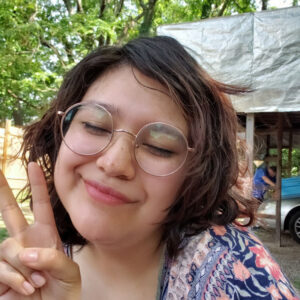
What was your nature as a child?
I was a very energetic child, I spent most of my time exploring, running around playing tag, playing hide and seek, and generally just having fun with my cousins. I was also very clumsy, I was constantly breaking things, and knocking things down. As a result, my knees were always scraped from falling, it’s a miracle I never broke anything! As an adult, I am no longer as energetic but I am still clumsy.
Explain your role in the EEW project. What excites you the most regarding your role?
Regarding my work at EEW, I’m the storytelling intern and I work on organizing and encouraging storytelling at EEW events. I’ve yet to attend an event, but I’m very excited about facilitating storytelling at an event. I am also very excited to help with social media as it’s something I’m somewhat new to and I’m looking forward to learning more about it.
What do you hope to gain from the EEW project? What do you hope to help accomplish?
During my time here, I hope to gain a better insight as to how people are personally affected by the lack of environmental enforcement and by environmental justice in general. I want to hear personal stories since those tend to be the ones to inspire change. I also hope to encourage people to share their stories and to organize against environmental wrongdoings in their area.
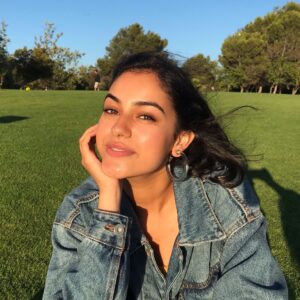
What was/is your major, and why did you choose it?
I’m an Engineering and Computing major at Olin College. I chose it as I began growing enthusiastic about problem-solving using data as a storytelling tool. With my major, I hope to continue understanding technology through an anthropological lens, creating ethical, sustainable solutions, and using my skill set to do social good.
Explain your role in the EEW project. What excites you the most regarding your role?
I am the Data Science Intern for the EEW Project. This means I’m working on data care, validation, processing, analysis, and visualization. I’m enjoying every moment of the work. So far, the best part of the job is the people. I feel so lucky to be working with such smart, driven, kind, and helpful individuals. Everyone is incredibly passionate about the mission of the organization — helping create a future in which justice and equity are at the center of environmental, climate, and data governance.
What do you hope to gain from the EEW project? What do you hope to help accomplish?
As my internship continues, I hope to learn more about environmental racism and work on creating impactful data visualizations on the disproportionate impact of environmental hazards on people of color.
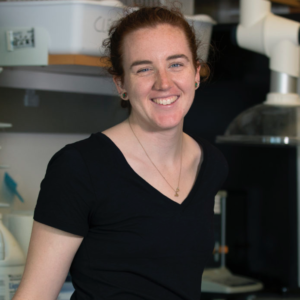
What was/is your major, and why did you choose it?
I just graduated from the University of North Carolina with a degree in Geography and minor in Environmental Science and Studies. Before that I lived out my first 2.5 years of college delightfully undeclared. Geography became my home once I realized what geography really was—honestly, anything and everything—and who geography was—some of the most inquisitive, nurturing, animated, and intelligent people I’ve ever had the honor of knowing. It was my realization that I fit in geography that helped me see that I could do the kind of environmental work I was already doing outside of academia, inside of academia. In some ways, that’s what led me to EDGI.
Explain your role in the EEW project. What excites you the most regarding your role?
In EEW, I’m the Research and Contextualization Intern, so I’m trying to help people make sense of all that beautiful data that Maalvika works on! It’s exciting just the myriad of directions that this information can be taken, and so far it’s been a great awakening into just how troublesome the data our government provides can be.
What do you hope to gain from the EEW project? What do you hope to help accomplish?
As we move further into the summer, I’m hoping to continue to learn more about what all of our data means, and, ultimately, help people better understand the data that is publicly available to them in a way that empowers their community and gets us a bit closer to a just and livable future we know is possible. I’m also excited about the opportunities to be involved on the data visualization side of this work because I just started to learn some of these skills in the past year and they’re so powerful! Above all, I’m so grateful to have met all of the passionate, kind people that have come together to work on this project. They all give me hope for the future when the outside world can’t.
EEW and Labor Justice
While EDGI is largely made up of volunteers, our EEW Interns are paid for their work. We as an organization believe that it is important to adequately compensate our team for their efforts. Unpaid internships and volunteer positions involve different tasks and expectations and therefore should not be treated as the same. The former upholds existing structures of inequality and places students from less-privileged backgrounds at a long-term career disadvantage, as they are often forced to choose between relevant career experience and making ends meet. We at EDGI (and EEW) pride ourselves on the openness and considerateness of our work culture and we are proud to pay our interns a living wage—above both federal and Massachusetts state standards. This is reflective of our values as an organization and of the vital work being done by our team members. It is our hope that this post has not only helped to elucidate our event’s structure and goals, but also shine a spotlight on some of our team members. If you’d like to get involved or simply learn more about EEW please visit our home page: https://www.environmentalenforcementwatch.org

